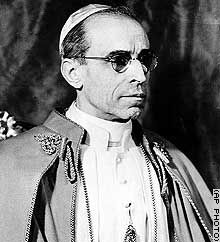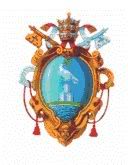Dorado

| |
| Flag of Dorado | |
| Motto: "Freedom through Christ" | |
| n/a | |
| Region | The New Meritocracy |
|---|---|
| Capital | Santa Fe |
| Official Language(s) | Latin, Spanish, English |
| Leader | Pope Pius XIII |
| Population | n/a |
| Currency | New Merit |
| NS Sunset XML | |
Dorado is a state located the central area of The New Meritocracy. It is bounded to the northwest by other countries, to the north by the Meritocratic Administrative District and the Northern Sea, to the east and south by Kitimat and to the southeast by the South Sea. Dorado has varied terrain ranging from mountains and forests to open plains. Blessed with abundant natural resources, Dorado is almost totally self-sufficient.
Contents
General Overview
The country has many large cities. The largest is New Albuquerque. It is the former federal capital and still maintains its independence as a city-state. There is no single ethnic group in Dorado that claims supremacy. Largely settled by immigrants over time, the only people of Dorado who are indigenous are the Navaho. They mostly reside in the interior and most of their population is within the state called the Navaho Territories. They are fully integrated into the larger Doradan society, though memories of past atrocities are not forgotten. A large portion of the population is made up of 'Doradans', people of mixed Spanish/Navaho blood. They make up a large portion of the middle class.
Dorado is mostly open. The southwest is mountainous. Along the coast and along rivers leading inland is the center of Doradan agricultural production. The mountains provide rich mineral resources along with lumber for building of all kinds. Oil has been found under the continental shelf in Doradan waters.
The people of Dorado are mostly Christian. The native Navaho population has its own tribal worship systems. Religious freedom is guaranteed though Catholicism is the state religion. A multi-ethnic society, Dorado has no overriding culture that can be described as solely 'Doradan'. However, there are a few common characteristics. Baseball is universally recognized as the national sport. In the Federal League, the Alamogordo Isotopes consistently win the pennent most years, though the New Albuquerque Senators are always contenders as well. Doradans have a strong civic duty. At the local level in most states, most towns are governed by councils of selectmen who serve as administrators while the townspeople in 'town meetings' decide important laws and policy for their town. Participation in elections at all levels usually runs over 80% of registered voters.
The most common profession in Dorado is engineer (of all kinds), followed by teacher.
People, culture and language
People
Government
The Catholic Republic of Dorado is a non-hereditary elective monarchy; the monarch, the Pope, being elected for life by those cardinals under the age of 80 during a conclave. The Pope exercises supreme executive, legislative and judicial power over the Holy See and the Catholic Republic.

]
The Pope as Archbishop of Santa Fe is the ex officio Sovereign of the Catholic Republic of Dorado. The Holy See of Santa Fe is the legal entity that conducts foreign policy on Dorado's behalf and directs Dorado's internal policy. The Pope as sovereign is elected by the College of Cardinals, usually from among their own, though nominally any Catholic male is eligible for election.
The Pope rules the Holy See through the Curia and the Papal Civil Service. The Curia consists of the Secretariat of State, nine Congregations, three Tribunals, eleven Pontifical Councils, and a complex of offices that administer church affairs at the highest level. The Secretariat of State, under the Cardinal Secretary of State, directs and coordinates the Curia.
The Pope delegates the internal administration of Dorado to the Pontifical Commission for the Catholic Republic. The Pontificial Commission is bicameral, with one house elected by the people and the other by the legislatures of the Doradan states.
Three tribunals are responsible for judicial power. The Apostolic Penitentiary deals with matters of conscience; the Sacra Rota is responsible for appeals, including annulments of marriage and the Apostolic Signatura is the final court of appeal.
The Prefecture for Economic Affairs coordinates the finances of the Holy See departments and supervises the administration of the Patrimony of the Holy See, an investment fund founded several hundred years ago. A committee of fifteen cardinals, chaired by the Secretary of State, has final oversight authority over all financial matters of the Holy See, including those of the Institute for Works of Religion, the Doradan Bank.
Economy
History
The area that now makes up Dorado has been occupied for millennia by the indigenous Navaho people. A group (or several groups) based in tribes and clans, the Navaho lived a nomadic life for the most part, though some communities were settled in small villages that relied upon fairly advanced forms of irrigation to cultivate the land.
The Spaniards
By the 16th century, immigrants from far countries began arriving in Dorado. The first immigrants were Spaniards who were searching for gold for their king. Settling the land, these Spaniards brought with them their religion, Roman Catholicism. The missionaries were of the Order of St. Khidr and they built schools and churches in newly built villages or the existing villages of the Navaho. The Navaho who were settled quickly converted, but the nomadic segments were less impressed by the Spanish 'invaders' and resisted. This led to repression and in some extreme cases slavery. However, the Catholic Church formally banned such repression over time. In the end, the Navaho were subdued not by the Church or the Spanish colonists but by disease which reduced their numbers by two-thirds before they began to develop immunity and replace their numbers. By that time, most all had been fully integrated, though many still lived in the interior of Dorado, clinging to their old ways of living.
The Spaniards who arrived in Dorado were quick to establish their rule over the technologically inferior natives. As a viceregality of the King, El Dorado as it was called was ruled with an iron fist by the Viceroy, though the Church, always independent, made sure the common people were not too harshly treated. Over time, many of the Spanish intermarried with the Navaho, creating the Doradan ethnic group that occupied a middle ground between the pure-blooded Spanish overlords and the peasant Navaho villagers and farmers.
The 'English'
By the early 19th century, the Spanish had fallen economically and the Doradans had slowly replaced the Spaniard ruling class. A revolution broke out in 1826 and in the next year, the first Republic of Dorado was proclaimed. Large numbers of English-speaking immigrants arrived in Dorado soon after, looking for wealth and a new start. These 'English' (the common term for them due to their language) slowly asserted control and created a large economic empire that spanned Dorado and adjoining lands. Well into the 20th century, the 'English' dominated the republic, using their financial leverage to keep the Doradans and Navaho in line. The republic became decidedly secular and the Church lost much influence.
The Junta
Again, the masters were eventually overthrown, as by the 1980s, Dorado found itself in the midst of foreign invasion and internal conflict. The peasants had risen up in revolt and several foreign powers took advantage of the unrest to move in as well. The republican government fell apart and was replaced by a dictatorship. The Free Republic, as it was called, was ruled by a triumvirate through what was called the Defense Central Committee.
The members of the Junta and their 'official' positions:
- Colonel Mackenzie, chairman of the DCC and President-for-Life
- Marshal Chedwiggen, Dorado Military Chief of Staff
- General Marcos, Chief of the Dorado Secret Police
Dorado retained its parliament and judiciary along with the executive under the old republican constitution, but under the junta, the constitution was suspended along with most all civil rights. After Dorado's government was reconstituted and subsequently joined the Meritocratic Senate, reforms were initiated and slowly the old constitution was revised. Due to his work in dismantling the dictatorship, Robert Mackenzie won the first presidential election under the revised constitution on June 21, 2004.
The Free Republic
Dorado was a federal republic consisting of sixty-four states and one federal district. The federal government was made up of three branches: the executive, the legislative and the judicial. The executive was headed by the President. The legislative consisted of the Parliament, a bicameral legislature. Its two houses were the Assembly, its 937 members popularly elected, and the Senate, its 256 members appointed by the state legislatures. Each state had four seats in the Senate. The judicial branch consisted of the Supreme Court and other lesser courts. The Supreme Court exercised judicial review over all laws, federal and state. Judges were nominated by the President and approved by the Senate.
On June 21st, 2004, Dorado held elections for the first and only under the revised Doradan Constitution.
President
- Robert Mackenzie of the Free Commerce Party - 83%
- John Nguyen of the Union of Doradan Soviets - 17%
Assembly (937 seats)
- Free Commerce Party, 604
- Centre Party, 109
- Communists, 224
Senate (256 seats)
- Free Commerce Party, 185
- Centre Party, 45
- Communists, 26
The Catholic Republic
Former Secret Police Chief Marcos in a plot with Vice President McDonald conspired to assassinate President Mackenzie and then plant a nuclear device in the National Cathedral in New Albuquerque to kill any remaining rivals. The plot was successful and McDonald became president. However, certain elements in the military led by the new chief of Staff, Sarah Rabb, uncovered the plot.
</div>The Catholic Church in Dorado learned of the conspiracy from the military and Jose Maria Cardinal Ibanez led a revolution against McDonald and Marcos in April of 2005.The peasants of Dorado were led by the Church in overthrowing the conspirators and setting up the new Catholic Republic. The capital was moved to Santa Fe and Dorado legally came under the jurisdiction of the See of Santa Fe, as Cardinal Ibanez was Archbishop. The Holy See became the official sovereign legal entity under which fell the new Catholic Republic. To add to his standing and to help unite the disparate Catholic factions around The New Meritocracy, Ibanez called for a conclave. On April 23, he was elected as Supreme Pontiff of the Church and also took the title Patriarch of Dorado along along with several other spiritual titles to go with his old title of Archbishop of Santa Fe.
OOC
The Free Republic of Dorado was founded in either late 2002 or early 2003. Its early history was linked with that of the region Northeastern Pacific Rim. Dorado was engaged in a series of conflicts with other states of that region for control of the Corto Maltese Islands. The conflict was never decisively decided.
During the summer of 2003, Dorado was purged and sent to Lazarus, where it was reconstituted in November. Dorado promptly moved to The New Meritocracy, where it applied for membership. Its application was approved and Dorado took its seat on November 28. Since then, the Free Republic has served in various capacities in the Meritocratic Senate, most notably as Lictor.
Originally apart of a larger republic, when that state was dissolved amid civil war and foreign invasion, Dorado was formed from one of the fragments. (See the 'Choose Your Own Adventure' book Escape for more information.) Initially a republic, a military junta was quickly installed.

